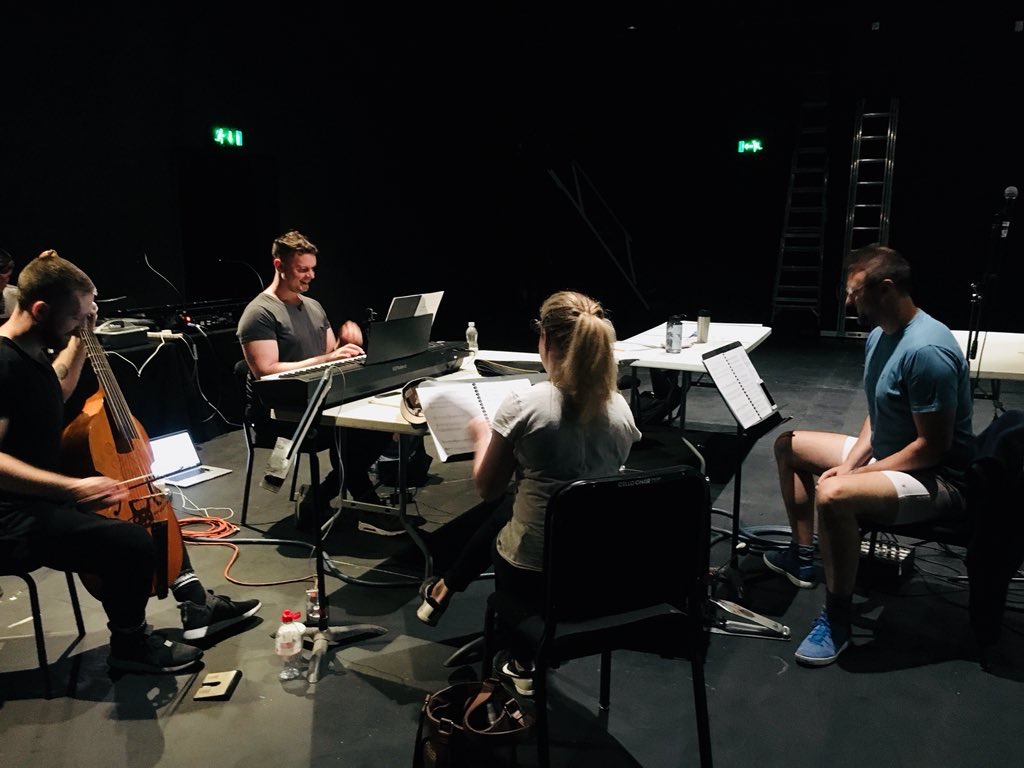Dear Marie Stopes - the background to my new opera
A new opera inspired by a controversial sex manual from 1918 and an extraordinary archive of private letters that has startling relevance for today's world.
I came across the Wellcome Collection’s extensive Marie Stopes archive in 2016 after writing to Dr Lesley Hall, former senior archivist and sexology expert, seeking advice on a different project. I quickly realised I’d already come across it at the Wellcome Collection’s fascinating "Institute of Sexology” exhibition in 2014.
The archive itself is extraordinary and unique. It contains thousands of private, intimate letters written to Marie Stopes from members of the public in response to her landmark publications on sex, birth control and parenting in and around the 1920s. The first of these publications, Married Love, was a sex manual Stopes published in 1918 to educate men and women on the most intimate details of sex, sexual desire and contraception while firmly advocating sexual equality between men and women. It became a global sensation, revolutionising attitudes to sex around the world, and was controversial not only for its contents, but because it was written by a woman.
Reading the impassioned opinions and desperate situations described in the letters led me to think about what’s changed in our attitudes to sex over the last 100 years since Married Love was written. Thankfully, so much has changed. But there are still so many opinions and attitudes towards sex, sexuality, contraception and equality in the letters that are as explosive now as they were then. This fascinated me: a historical archive giving a unique snapshot of society's sex life 100 years ago that has poignancy and relevance today. So, I decided, of course, to turn it into an opera - with the shrewd guidance of Dr Lesley Hall and librettist Jennifer Thorp.
The piece is a chamber opera for 3 singers, viola da gamba and cello, with a libretto constructed from fragments and extracts from the archive of letters. The premise of the piece is to give a voice to some of the thousands of people who wrote to Marie Stopes sharing their most intimate stories, opinions and experiences about sex and the challenges of birth control. We learn about attitudes and problems in sex lives from the past and question our own views on these issues today.
Although the focus is on the letters from the public, we hear from Marie Stopes too when she writes responses or voices controversial opinions. We also learn about a personal tragedy Stopes experienced herself and about some of the more difficult aspects of her character, including her links to eugenics. But this is certainly not "Marie Stopes - The Opera." Rather, Stopes is a catalyst and conduit through which we view a unique snapshot of society's experience of sex 100 years ago.
The text is so emotionally charged and intimate that I wanted to give it as much space to breathe as possible. Musically, the piece uses a lot of simple plainchant-style singing to deliver the personal sentiments of the letters, accompanied by drones and subtly shifting harmonies on strings. There is no traditional, linear narrative. Rather a collection of impressions and moments derived from the source material that form a dramatic structure lasting about 40 minutes.
The three singers have their work cut out for them, taking on many different characters and voices as we hear different letters and points of view. I’m very lucky to be working with Alexa Mason (soprano), Jess Dandy (contralto) and Feargal Mostyn-Williams (countertenor) who each bring their own brand of originality to the piece. Meanwhile, I’ve created a delicate soundworld with virtuoso viola da gamba player Liam Byrne and cellist Lucy Railton.
We workshopped the opera at the Barbican in June under the watchful eye of director Nina Brazier, as part of the Barbican's Open Lab scheme, and will start rehearsals at the end of July ready for the first performance on August 9th. There are two further performances on August 11th and 12th.
Excitingly, the piece is part of this year’s Tête-à-Tête opera festival and will be performed in the Reading Room of the Wellcome Collection, the perfect setting given the source material is housed in the same building and the collection’s mission to link history with our experience today. The event is free but is ticketed - tickets will be available online from July 27th. See you on opening night!
More info here.
Workshopping "Dear Marie Stopes" at The Barbican, June 2018.
